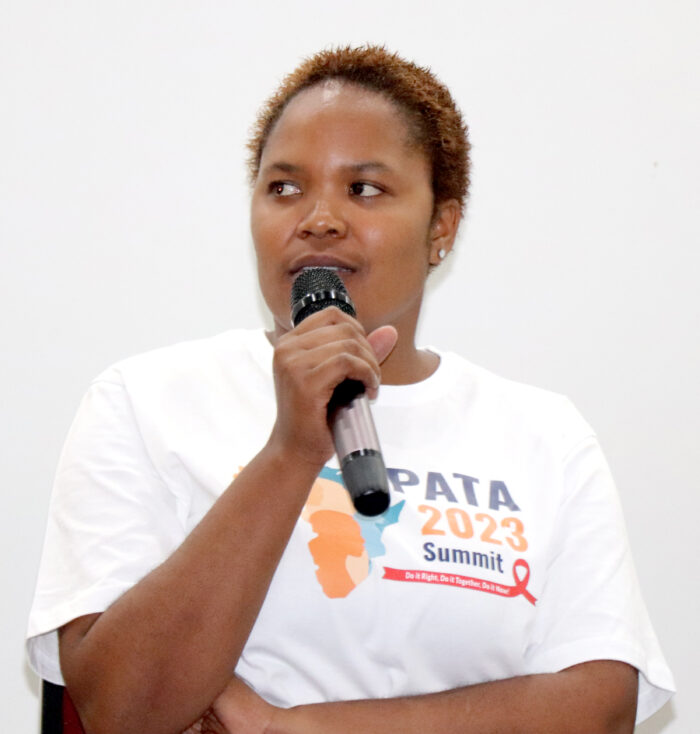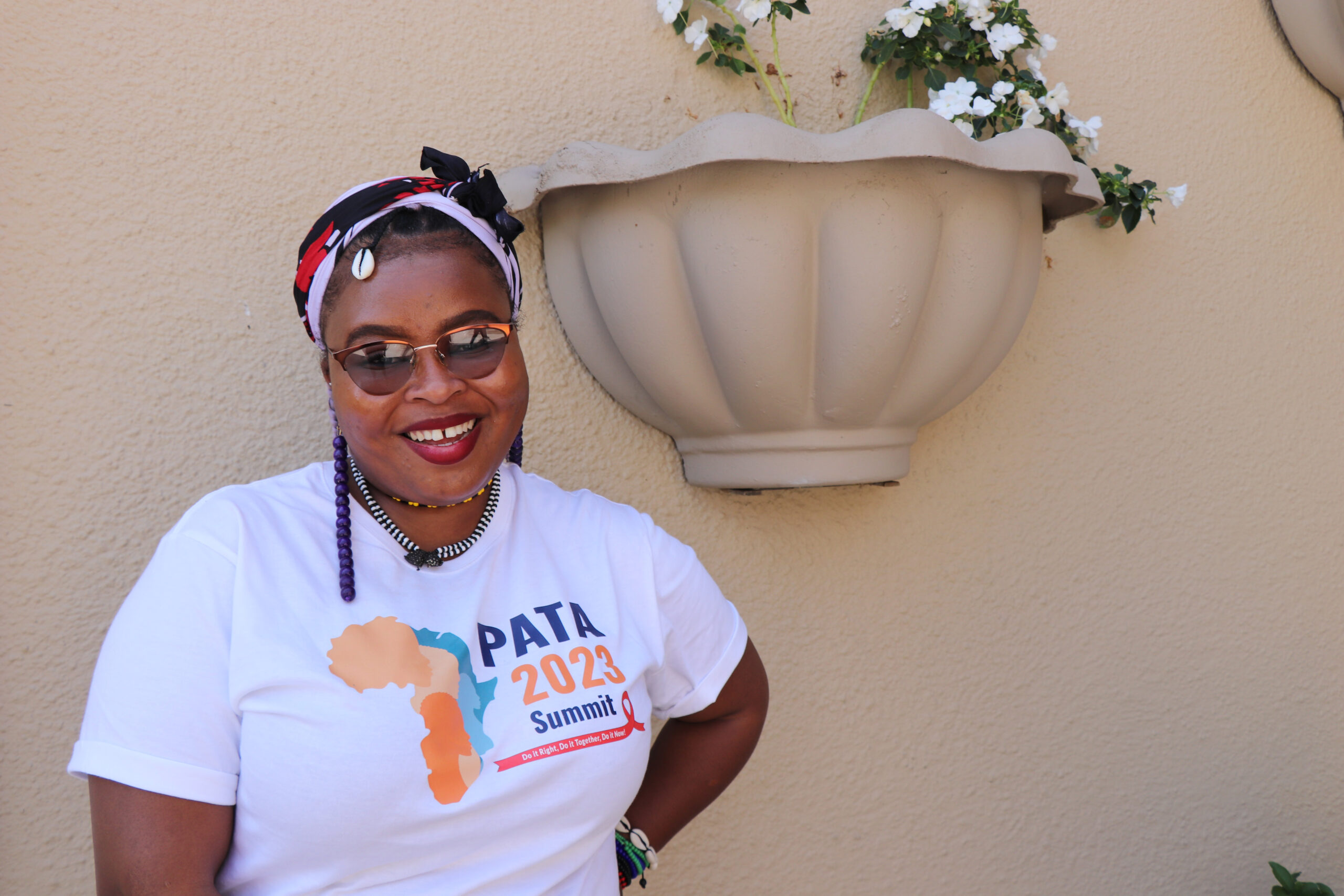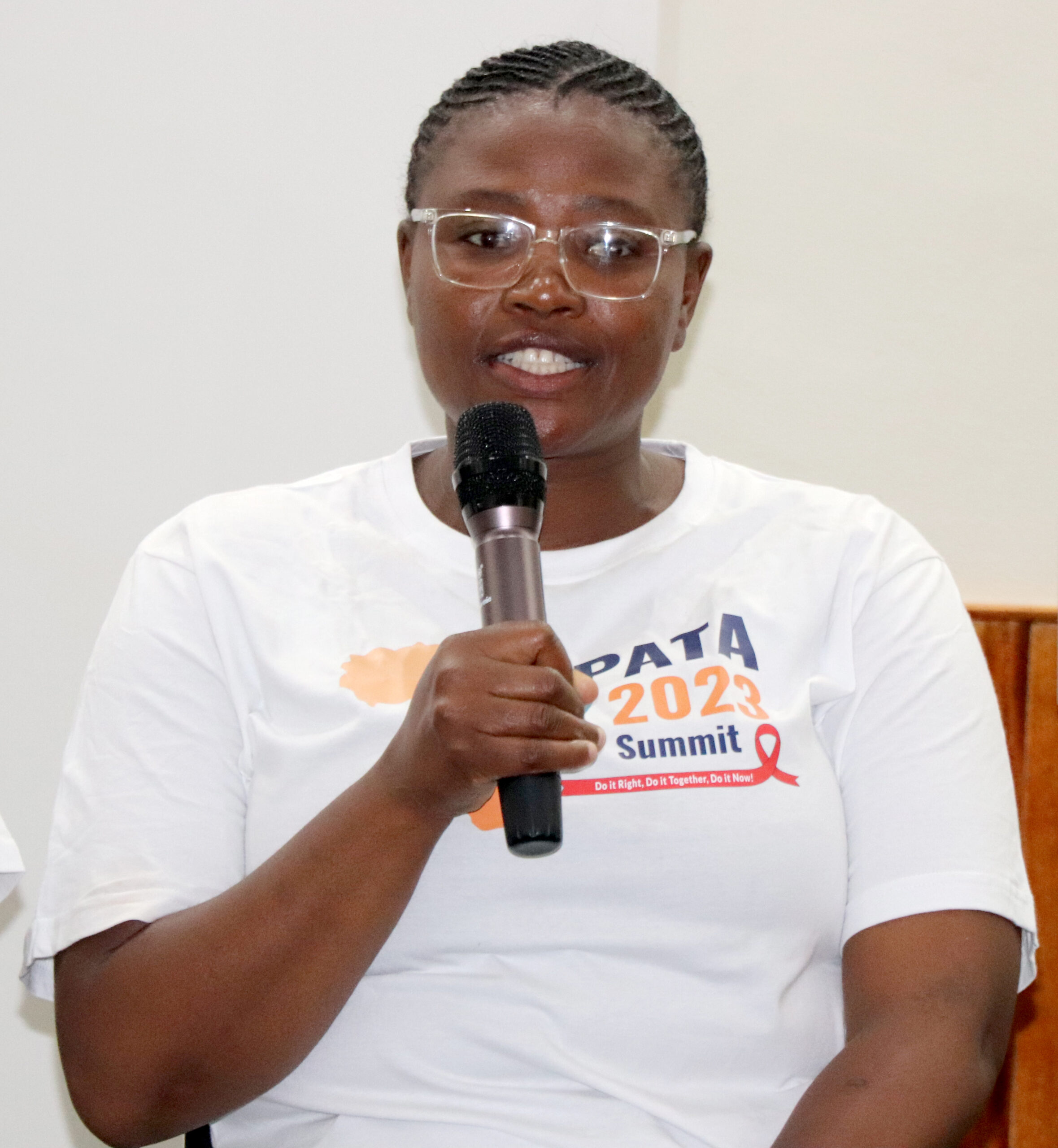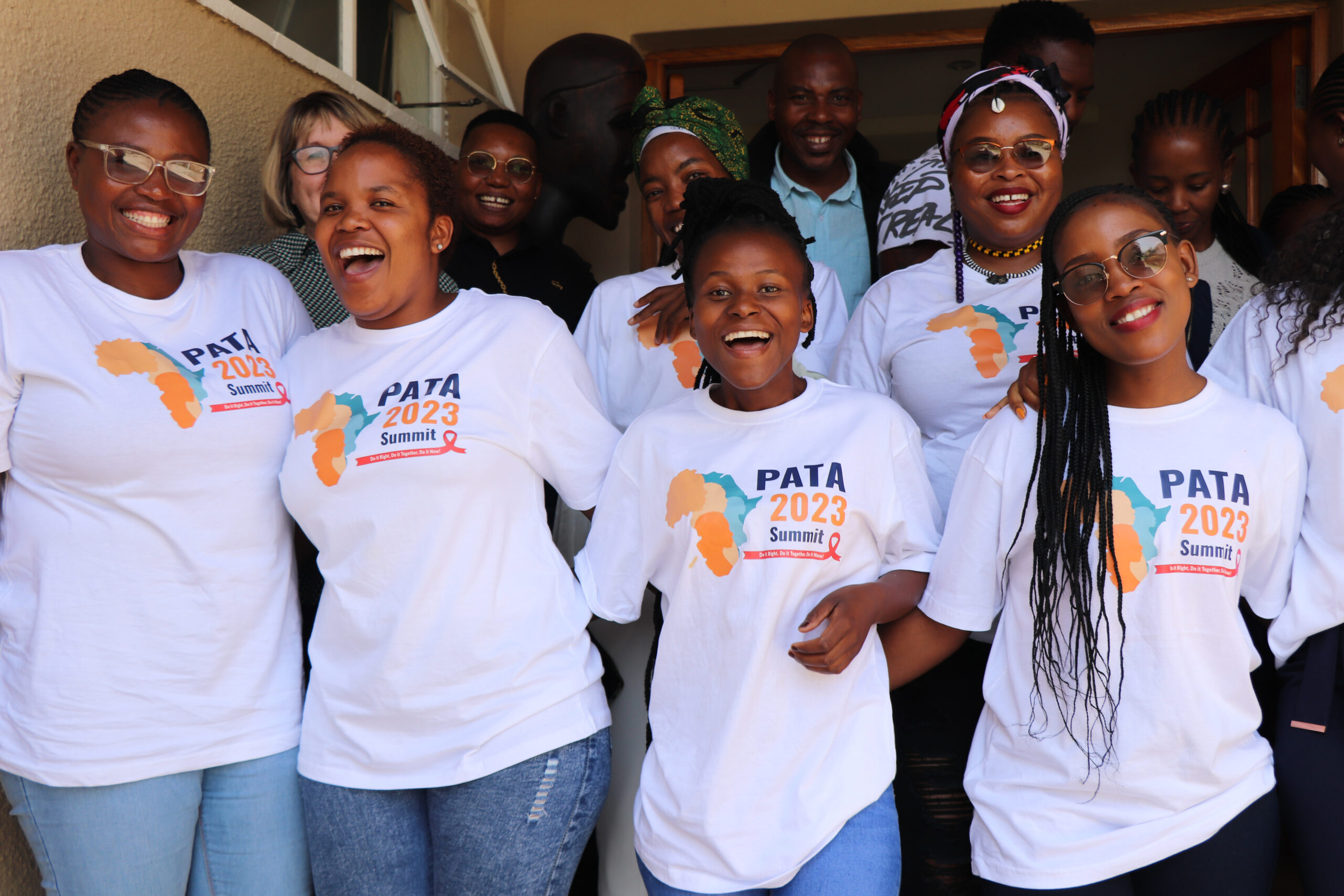Ts’epang Sonopo, a young woman living in Maseru, Lesotho, discovered her HIV-positive status when she was pregnant at the age of 21. Upon learning about her status, she immediately disclosed to her partner and requested that he go to the health facility for an HIV test. To her surprise, the partner said that he had previously tested and knew that he was HIV-positive—but he had not disclosed it to her.

“I was shocked and depressed,” said Ts’epang, “but with psychosocial support from village health workers and health care workers from my facility, I was able to accept my status and enroll in ARV [antiretroviral] treatment.”
Sharing her experience during the annual Pediatric Adolescent Treatment Africa (PATA) Summit, held in Maseru, Lesotho, in November 2023, Ts’epang said that she was not ready to disclose her HIV status to her mother immediately. She waited until after her baby was born, when her mother was conducting a traditional cleansing of the newborn, which is done immediately after birth.
Despite her hesitation to disclose to her mother, in the end, Ts’epang found it easy and was relieved that she could talk openly about her HIV status.
“She is my best friend, and she always supported me and, thus, helps me to adhere to my treatment,” said Ts’epang, who now works with mothers2mothers (m2m) as mentor mother in one of the health facilities in Maseru.
The Power of Disclosure

“There are always two sides—both negative and positive—that we receive after disclosing our HIV status,” explained Mats’epo “Dee” Mphafi, a senior youth ambassador with the Elizabeth Glaser Pediatric Aids Foundation (EGPAF). Dee said that worry about a negative reaction keeps people from telling loved ones that they are living with HIV.
“For me, it was easier to disclose to my husband, but it was not easy to disclose to my in-laws,” said Dee. “I only disclosed [to them] after the baby was born.”
Dee emphasized that despite the difficulty, disclosure can often help adolescents and young people accept their HIV status and adhere to treatment. It can raise their self-esteem and reduce anxiety and self-stigma.
According to Dee, disclosure helps adolescents make informed decisions regarding their sexual and reproductive health. More importantly, disclosure helps adolescents access HIV services freely and receive support from family members and friends.
Peer Support Makes It Easier

Makhauta Shasha from Help Lesotho also counsels peers living with HIV. She provides a shoulder to cry on for young mothers who have tested HIV-positive and are scared to start ARVs because they are not ready to disclose their HIV status.
Help Lesotho conducts sessions with young women, mothers-in-law, and intimate partners, providing HIV education and assisting with disclosure and family support.
“After disclosure, most young mothers are able to adhere to ARV treatment and most are now virally suppressed—preventing HIV transmission from the mother to their unborn babies,” said Makhauta.
Disclosure Is an Ongoing Process

EGPAF Psychologist ‘Mamothepane Seleke indicates that disclosure is an ongoing process and not a once-off thing. This is because disclosing one’s HIV status has both positive and negative impact.
“Therefore, there is a need to prepare both parties; the one who discloses their HIV status and the one who receives the information, whether is an intimate partner, a parent, or a mother-in-law,” says Seleke. “After disclosure we do not end there, but we monitor the client for any challenges experienced and offer support,” she said.
Seleke says that most clients reported relief after disclosure, but there are few that experience negative impact such as withdrawal from peers, internalized stigma, sadness, discouragement, and fear of rejection. When there is any negative feedback because of disclosure, health care workers refer clients to psychologists for support.
Community-led organizations like m2m and Help Lesotho are crucial when it comes to easing the burden of disclosure and reducing stigma around HIV, so that young people adhere to treatment and live healthy lives.
Thirteen countries participated in this year’s PATA Summit, the theme of which was Do It Right, Do It Together, Do It Now.



